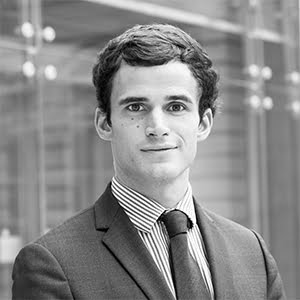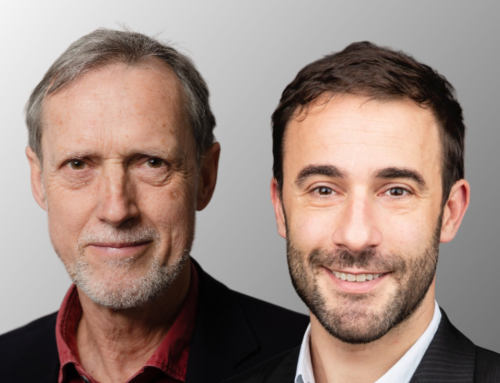
It is never a bad time to look at Germany’s political internal policy developments. Even when things are boringly stable, the country always has a strong influence on EU affairs. And when things get more agitated, it is even more interesting. As the coalition seems to be at sixes and sevens over many issues, we asked Alexandre Robinet-Borgomano, Adviser for Germany at Institut Montaigne to share his thoughts. What does he think of Chancellor Olaf Scholz’s governance style and authority, the coalition’s stability, and the much discussed “Zeitenwende“? Do the German coalition parties have some kind of influence on EU debates? Read what he had to say!
Q1. The German coalition, which has been in place for a year and a half now, seems to be divided from within on a set of issues ranging from fiscal policy, budgetary policy, the environment, and foreign policy. What is your analysis of the stability of the coalition and its prospects?
The establishment of the “traffic light” coalition, which for the first time brought together at a federal level the Greens and the Liberals under the leadership of the SPD, appeared from the outset to be a challenge for the coherence and effectiveness of the Government’s action. United as a so-called “progressive alliance”, the initial program of this coalition contained several contradictions revealing the fundamental ideological differences between the different parties, particularly on the Nord Stream II pipeline project or on tax policy. The outbreak of the war in Ukraine has brutally relegated this programme to the past, forcing the parties in power to question their basic principles. In this regard, the announcement by the Chancellor in February 2022 of the Zeitenwende, the change of era, was accompanied by remarkable unity within the coalition.
The divisions that are now emerging are not so much related to the ideological differences between the ruling parties. They are more of a reflection of the balance of power that tends to accumulate within the government. The Chancellor’s leadership and that of his party, the SPD, is being challenged by the popularity of the Minister for Foreign Affairs, Annalena Baerbock, and the Minister for the Economy, Robert Habeck, who both belong to the green party. The liberal party, on the other hand, barely exists within this coalition: its failures in the last regional elections have pushed it to take a more radical position and to even go as far as opposing its partners in an attempt to exist politically. These fault lines make it more difficult to carry out public action, but they do not threaten the stability of the coalition.
Q2.Chancellor Scholz seems to be struggling to clearly communicate his political strategy, particularly on foreign policy. This seems to unsettle public opinion and Germany’s allies. How would you characterise his governance style? Is he actually capable of exercising strong leadership over the coalition?
If we compare Chancellor Olaf Scholz’s communication style with that of Angela Merkel, there is a striking abundance of text and specificity in the vision formulated by the Chancellor. The historic “Change of Era” speech that he gave at the Bundestag in February 2022 and that on Europe in August 2022 at the University of Prague do not really have an equivalent from the previous period. The Chancellor also set out in detail his vision in an article in the “Foreign Affairs” magazine which is important to analyse. The Chancellor explains his stance and vision in great detail, but it is true that a national security strategy, such as the strategy regarding China, is yet to get off the ground.
If his communication style differs from that of his predecessor, his government style is, on the other hand, quite similar to that of Merkel: to govern does not mean making grand gestures but, rather, resisting to the pressures of public opinion and that of his partners, to finally decide once the conditions for consensus are met. I think we should not underestimate the authority of the Chancellor over his ministers, which is not comparable to that of the French President. In their areas of expertise, the ministers have a lot of clout, which explains why a deal made by the Chancellery with one of its European partners can at times be challenged by one of his ministers.
Q3.What is your assessment of the German coalition’s record so far? Do you not think that it has been weakened by the parties’ desire to differentiate themselves at local elections? Would you also say that the three coalition parties have been able to have an influence on European debates since they formed their alliance?
It is very important to remember where this coalition started. Socially, the coalition was able to put in place a minimum salary of 12 euros. In the field of energy, the coalition managed to untangle Germany from its dependence on Russian hydrocarbons by creating new infrastructure to channel liquefied natural gas from the United States and by presenting, last Easter, a fundamental reform of the law on renewable energies. Militarily, Germany made a U-turn, moving from a profoundly anti-militarist stance to confirming its military ambition to unprecedented levels since the end of the Second World War. Germany’s discourse on China has also been profoundly renewed: the new watchword for reducing its dependence on the Middle Empire is “diversification”. We are undoubtedly witnessing an acceleration of political time in Germany, which contrasts with the 16 years of stability and prosperity under Angela Merkel. But it was indeed these 16 years that allowed Germany to set the milestones that allowed it to establish itself as a central power in Europe today.
Q4.How is the German right likely to change itself after 15 years of power of Angela Merkel? What will remain of the centrist dynamics imposed by the former Chancellor? Will we see a sharper turn to the right?
We must not overestimate the decline of the German Right. The last regional elections that were held in Berlin saw the CDU, Angela Merkel’s party, come out on top and the latest opinion polls put the conservative party ahead of the social democrats by almost 12 points. However, the party tends to accentuate its more conservative leanings, where Angela Merkel tended to highlight the more liberal and Christian-Social wings of her party. The strengthening of this conservative stance currently appears to be the condition for its future success.






